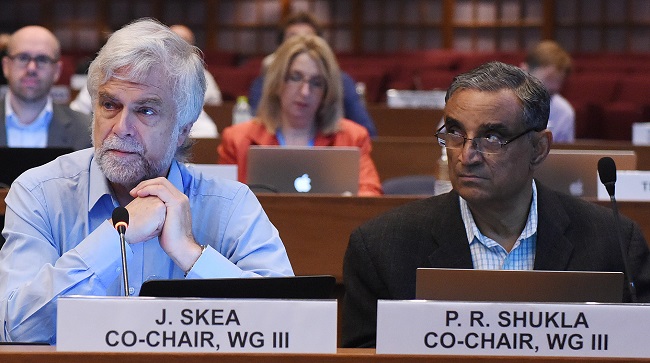The Intergovernmental Panel on Climate Change (IPCC) has said that the October 2020 deadline for delivery of the Second Order Draft of the Working Group III Report contribution to the Sixth Assessment Report (AR6), which assesses the mitigation of climate change, is no longer possible because of disruption caused by the COVID-19 pandemic.

This step comes as the Working Group III Technical Support Unit (TSU) publishes a report on the IPCC’s first Virtual Lead Author Meeting.
An internal consultation by the Technical Support Unit identified that, during the current COVID-19 pandemic, authors and experts are facing substantial challenges to their health and working conditions, with many experiencing changed or increased work obligations and additional domestic commitments.
“Our authors and experts are working hard under the most difficult of circumstances,” said Jim Skea, Co-Chair of IPCC Working Group III.
“We want to ensure that there is opportunity for equal contribution from all authors, that they can maintain their health and wellbeing, and that they are given adequate time to produce a thorough report. This is especially important given the practical and technological limitations they’re facing, many of which were highlighted at our recent virtual Lead Author Meeting,” Skea added.
Working Group III’s third Lead Author Meeting was originally scheduled to be held in Quito, Ecuador, on 15-19 April, but due to the COVID-19 pandemic, the physical meeting was cancelled and moved online as “eLAM3”. A report from the Working Group III Technical Support Unit provides insight into the benefits and trade-offs of hosting large virtual meetings and outlines implications for future IPCC meetings.
“eLAM3 was successful in what it set out to achieve, but from the outset its ambitions were lower and its objectives more limited,” the Working Group III Technical Support Unit said in the report on the meeting. “There was a general view that a virtual meeting could not completely substitute for a physical meeting,” it said in the report, which can be accessed here.
Analysis of the meeting shows that the number of virtual participants was considerably higher than the number who had confirmed their participation in the physical meeting.
However, more respondents from developing countries felt they were not able to fully participate in the meeting than those from developed countries, said the Working Group III Technical Support Unit in the report.
Other notable benefits included a reduced carbon footprint from avoiding air travel (an estimated saving of 368 tonnes of CO2 emissions), benefits to participant health and wellbeing from avoiding travel, and financial savings (an estimated saving of approximately $1 million). The associated virtual outreach event was attended by over 600 members of the public, significantly higher than the 80-250 attendees typically expected at an in-person event.
“This report shows just how much we can accomplish from a distance and provides an example of how IPCC meetings could be run online in future,” said Priyadarshi Shukla, Co-Chair of Working Group III.
“We found that a virtual meeting brings both trade-offs and benefits for those who must balance meeting requirements with domestic and other work commitments, but we must not forget that there were still challenges in achieving equitable participation and that this eLAM3 was never intended to replicate a standard Lead Author Meeting,” Shukla noted.
In the light of these challenges, Working Group III has reviewed progress on the Second Order Draft and ascertained that meeting an October deadline is no longer feasible. Moving forward, consultation with member governments will be undertaken in order to determine a precise schedule for Working Group III’s contribution to the Sixth Assessment Report, the IPCC said.
IPCC Working Group III is responsible for assessing the mitigation of climate change – responses and solutions to the threat of dangerous climate change by reducing emissions and enhancing sinks of the greenhouse gases that are responsible for global warming.
